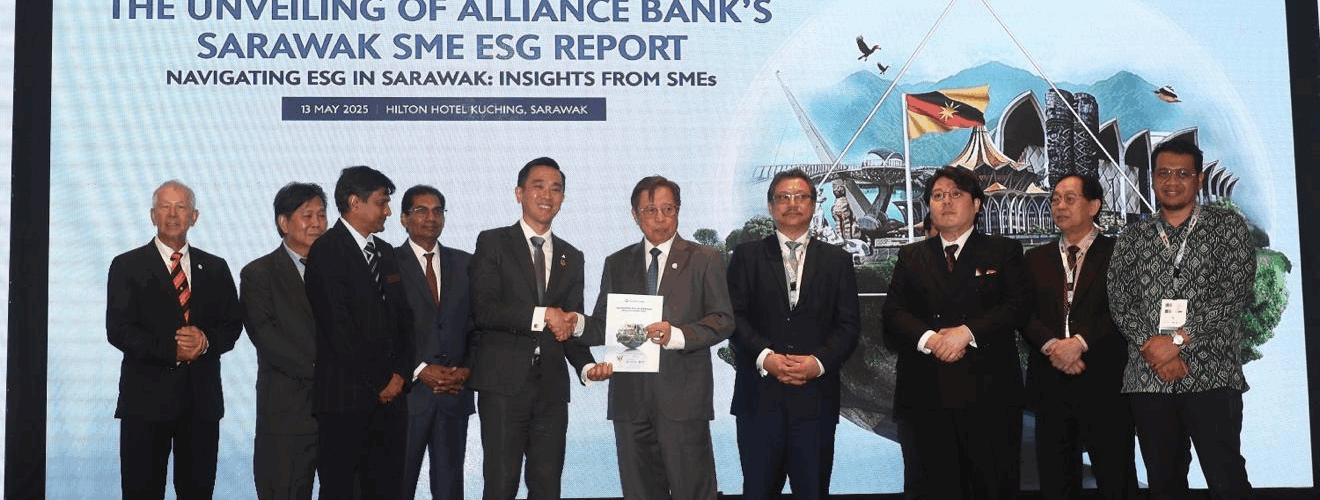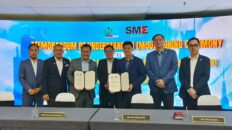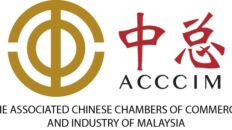Key Takeaways
- Sarawak’s SMEs Are Central to Its Green Transition While Sarawak is known for its hydrogen and renewable energy ambitions, SMEs are emerging as the true enablers of its sustainability agenda. Alliance Bank recognises that empowering these businesses is essential to translating policy into practical, on-the-ground transformation.
- ESG Readiness Is Rising — But Guidance Still Matters According to Alliance Bank’s Navigating ESG in Sarawak report, 66% of SMEs have integrated ESG practices, and 62% are aware of ESG concepts. Many are already practising sustainability without labelling it “ESG.” However, non-adopters cite the need for financial incentives, clearer guidelines, and structured training to advance further.
- A Collaborative, Supply Chain–Led Model The Bank’s approach focuses on collaboration with corporates like Sarawak Energy, enabling a top-down influence where large organisations guide SME suppliers in meeting sustainability standards. This strategy also tackles Scope 3 emissions, helping SMEs align with global value chains and procurement expectations.
- Practical Tools and Financing to Drive Progress To help SMEs act, Alliance Bank developed the PROGRESS Climate Assessment Tool with UNGCMYB and pledged RM1 billion in sustainable financing, half of which has already been deployed. A forthcoming Sustainable Manufacturing Playbook will offer sector-specific case studies to translate ESG principles into tangible business actions.
- From Readiness to Resilience The next phase centres on resilience and innovation — through initiatives like a Circularity Lab with academia and strategic deployment of the remaining RM500 million in sustainable financing. Alliance Bank’s goal is to make ESG not just about compliance but a competitive advantage that strengthens Sarawak’s SMEs for long-term, global participation.
In an interview with MALAYSIA SME, Dr. Aaron Sum, Group Chief Strategy & Transformation Officer of Alliance Bank Malaysia, shared how the Bank is working with Sarawak’s SME community to build ESG readiness.
Alliance Bank is laying the groundwork for a more inclusive and competitive ESG landscape in East Malaysia through partnerships with the Ministry of International Trade, Industry and Investment Sarawak (MINTRED), Invest Sarawak, UN Global Compact Network Malaysia & Brunei (UNGCMYB), and Monash University Malaysia.
Why Sarawak, and Why Now?
As Malaysia’s fourth-largest contributor to national GDP, it plays a pivotal role in driving the nation’s growth. Its diversified economy spans agriculture, mining and quarrying, manufacturing, construction, and services — all sectors where environmental, social, and governance (ESG) standards are increasingly tied to trade, investment, and procurement decisions.
“ESG is central to the Bank’s strategy,” said Dr. Sum. “Our role is to translate the state’s broader sustainability vision into actionable support for SMEs. That means understanding where businesses are today, and helping them take the next step.”
That on-the-ground support took shape through a series of ESG-focused workshops conducted across Kuching, Sibu, Bintulu, and Miri, engaging over 200 SMEs across various sectors.
What Sarawak SMEs Told Us
To better understand the ESG landscape, Alliance Bank launched its inaugural report, titled “Navigating ESG in Sarawak: Insights from SMEs,” at the Hydrogen Economy Forum (H2EF) on 13 May 2025. The event was officiated by the Premier of Sarawak and attended by industry pioneers, representatives from the public and private sectors, as well as UNGCMYB and Monash University.
The report presents a first-of-its-kind snapshot of ESG adoption among Sarawak-based SMEs:
– 66% of SMEs have integrated ESG practices into their operations,
– 62% are aware of ESG concepts, and
– 34% of SMEs were classified as non- ESG adopters, which within 59% of them intend to adopt ESG practices within the next two years.
Interestingly, many SMEs had already taken steps that align with ESG principles — even if they didn’t label them as such.
“Some SMEs are already engaging in good governance, managing waste responsibly, or supporting their local communities,” noted Dr. Sum. “They simply haven’t used the term ‘ESG’ to describe those efforts.”
A Collaborative Supply Chain Approach to ESG
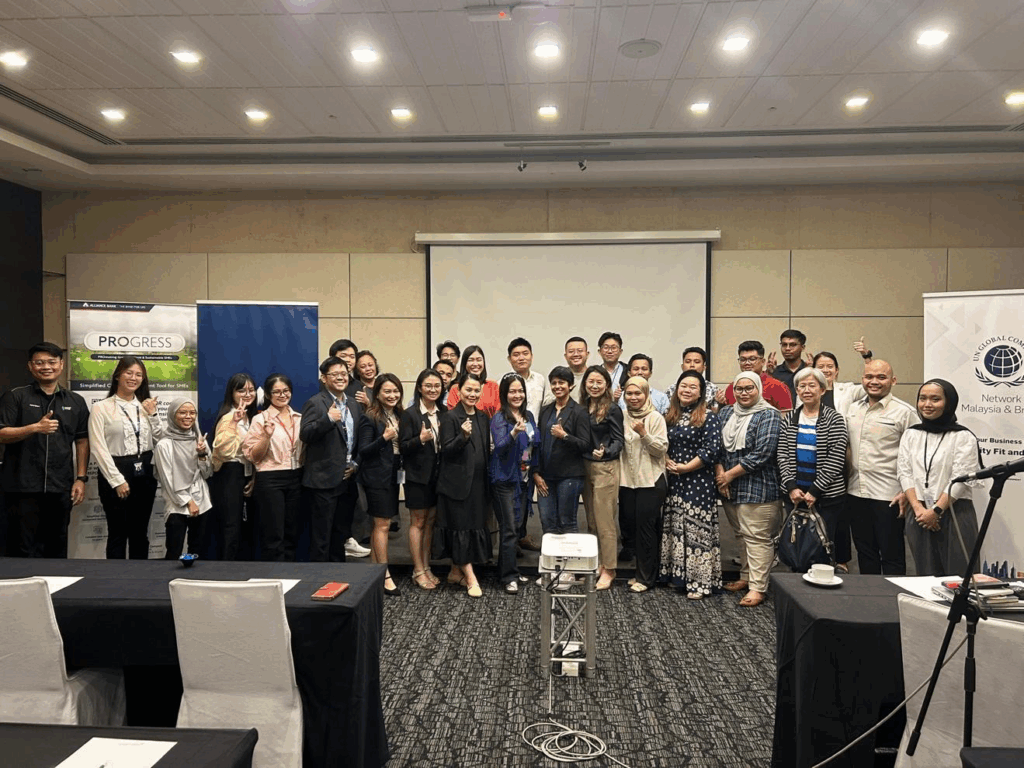
To accelerate ESG adoption in a practical and scalable manner, Alliance Bank has rolled out a collaborative initiative that begins by working with large corporations committed to decarbonising their supply chains. These corporates, in turn, help bring their SME suppliers along on the ESG journey.
“Our approach is deliberate. We begin with established supply chain leaders, support their SME partners, and provide the tools and financing required to enable meaningful progress.”
One notable example is the Bank’s collaboration with Sarawak Energy, which has committed to engaging its SME suppliers in sustainability initiatives. Through this partnership-driven model, Alliance Bank acts as a facilitator — enabling SMEs to access diagnostics, advisory services, and ESG-linked financing.
“If an SME is part of the supply chain of a multinational or a publicly listed company, they will likely need to demonstrate ESG alignment. We’re helping them prepare for that reality.”
Why Scope 3 Emissions Matter
This supply chain–focused strategy is a direct response to the often-overlooked challenge of Scope 3 emissions — indirect emissions that occur across a company’s value chain, from suppliers to logistics partners to product end-of-life processes.
"A green economy isn't just about your carbon footprint it's about your entire ecosystem," Dr. Sum shared. "We want to ensure that Sarawak's SMEs can thrive in this new environment, and not be left behind."
ESG Readiness for Global Investment
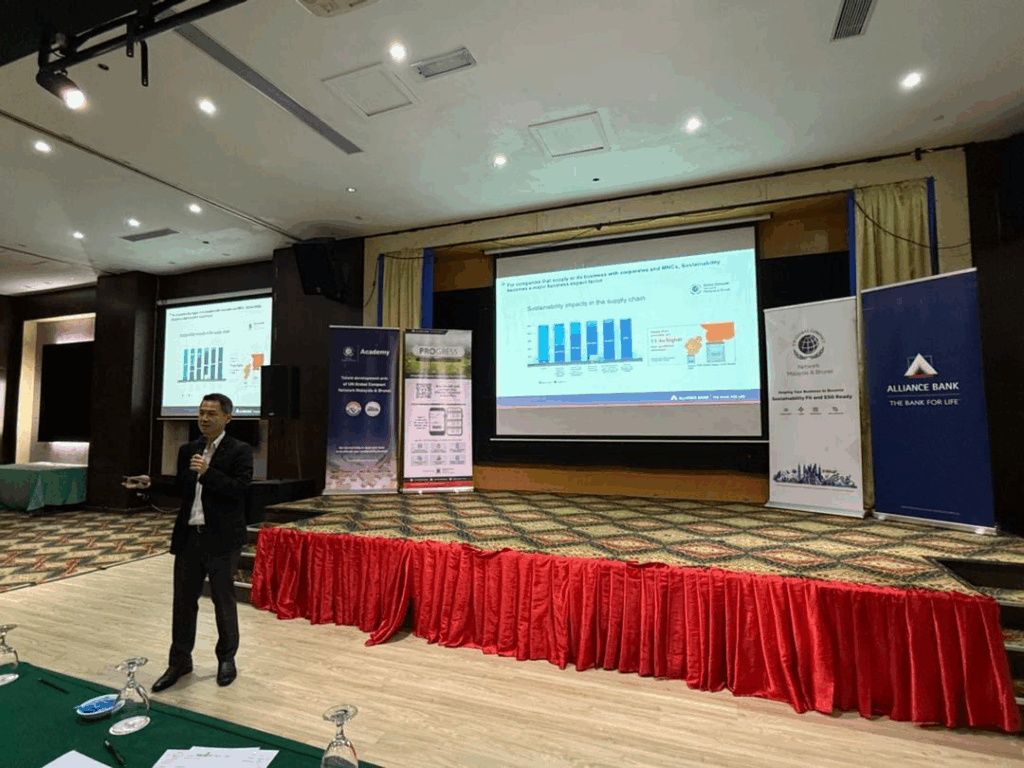
As global investors increasingly prioritise sustainability, ESG compliance is a prerequisite for inclusion in regional and international supply chains.
“For Sarawak SMEs, this means that ESG readiness is directly tied to their ability to attract foreign direct investment (FDI) and secure long-term contracts with multinational corporations,” said Dr Sum.
He added, “By strengthening the ESG maturity of SMEs across the state, Alliance Bank is not only addressing environmental or social issues, but also equipping local businesses to meet the procurement and governance standards required by global partners.” This alignment between ESG performance and investment attractiveness positions Sarawak well to attract green capital inflows.
RM1 Billion Commitment
Recognising that meaningful ESG transitions require funding, Alliance Bank has pledged RM1 billion in sustainable financing specifically for Sarawak SMEs. As of mid-2025, over RM500 million has already been disbursed to support growth and facilitate a transition to more sustainable business practices.
“We work with SMEs who are serious about transformation, and we tailor our support based on measurable outcomes.”
The Bank’s financing approach includes extending preferential terms for businesses that demonstrate improvements in climate performance — thereby directly linking sustainability improvements to business competitiveness.
Tools That Bridge
While awareness of ESG is growing, many SMEs still struggle with where to begin. To bridge this gap, Alliance Bank co-developed the PROGRESS Climate Assessment Tool, in partnership with UNGCMYB, a self-assessment platform specifically tailored to the needs of SMEs.
“This tool avoids jargon. It gives businesses a practical sense of where they stand and what actions they can take, and we follow that up with conversations about how we can support their journey.”
The Bank also plans to launch a Sustainable Manufacturing Playbook, which will provide sector-specific guidance and real-world case studies of Malaysian SMEs that have successfully implemented ESG strategies and have benefited from it.
The Sarawak Factor
“We’re seeing that in Sarawak, SMEs are often motivated not just by regulations, but by market opportunities and alignment with larger players.”
Compared to Peninsular Malaysia, Sarawak’s SMEs show a more balanced adoption across the Environmental, Social, and Governance pillars. This holistic approach could be attributed to the state’s sustainability direction, which is influencing not just corporates but also smaller businesses.
According to the report, 57% of are non-ESG adopters SMEs cited meeting market demand as the top motivators to start adopting indicating that businesses recognise the increasing expectations from customers and stakeholders for sustainable practices. Promoting innovation (46%) and obtaining cost savings (43%) were other considerations, as they could help enhance competitiveness.
The report also showed that government grants (64%), clear ESG guidelines (58%), and tax incentives (53%) were among the top needs, indicating that non-adopters require both financial and structural support; and half of the non-adopters welcome private or government-sponsored training, as well as financial support from banks.
Looking Ahead: From Readiness to Resilience
Dr Sum shared that the next frontier for Alliance Bank in Sarawak is marked by a strategic push towards deepening its sustainability and SME-focused agenda. Among its upcoming initiatives is the launch of a Circularity Lab in collaboration with academia, designed to foster innovation in circular economy practices and accelerate sustainable business solutions.
In tandem, the Bank is expanding its industry partnerships to broaden its reach among SMEs by tapping into trusted supply chain networks. Complementing these efforts is the targeted deployment of the remaining RM500 million in sustainable financing rolled out over the next 12 to 18 months to support businesses in their transition to greener, more resilient models.
“It’s a journey, and our focus is on those who want to take that next step,” said Dr. Sum. “By working with committed partners and enterprises, we can drive change that’s both scalable and sustainable.”
ESG for Greater Business

By leveraging ESG data, providing capital access with strategic partnerships, and on-the-ground initiatives, Alliance Bank is helping SMEs reframe ESG — not as a burden, but as a business opportunity.
“We don’t approach ESG in general terms. We talk about what’s relevant, what’s doable, and how we can help, because that’s where transformation begins.”
Dr. Aaron Sum, Group Chief Strategy & Transformation Officer, Alliance Bank Malaysia
Download the report:-
https://www.alliancebank.com.my/about-us/Sustainability/Sustainability-Reports/sarawak-sme-esg-2025



